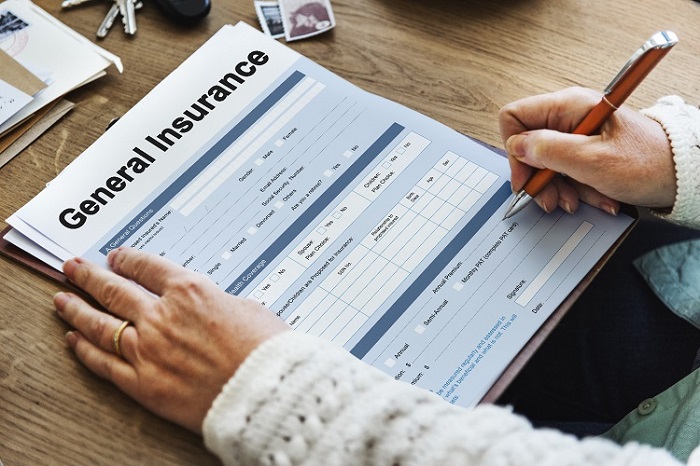
Written by
Updated :
Reviewed by
Question: What is Life Insurance?
Answer: Life Insurance is a contract between a insurance policy holderand a life insurance company. Where the insurer promises to pay a designated beneficiary a sum of money (sum assured) in exchange for a premium, upon the death of an insured person or maturity of the policy (depending on the policy contract) .Other events such as terminal illness or critical illness can also trigger payment.
Question: Why is Life Insurance useful?
Answer: Life Insurance is useful to provide your family with financial security in case circumstance throws you into a situation where you cannot earn or in case of early demise. It helps keep your family financially protected even in your absence. Life insurance policies also helps you save on a regular basis which provides you financial stability.
Question: Is Life Insurance necessary?
Answer: Life Insurance is not necessary but is a smart decision to make, especially if you have a dependent spouse and children. It offers your family a financial support even after your death. In addition to this, it offers a number of advantages and provides a lot of flexibility on your investment. For example, you can add a critical illness benefit to cover the cost of expenses for surgeries and operations; you can withdraw a part of your maturity benefit in case of an emergency.
Question: How do I decide on the amount of life insurance I need?
Answer: The life cover you need depends on your standard of living, income, spending habits, or the goal for which you want to save (i.e. your child’s education or marriage) etc. As the life cover amount acts as a financial security for your family/beneficiaries in your absence, it becomes even more important for you to take an appropriate amount of life cover also taking your current financial liabilities (loans etc.) into consideration.
Question: How much does life insurance cost?
Answer: The cost of life insurance depends on the type of policy you take, , the sum insured , your age, health condition and the benefits you expect to receive when your policy matures.
Question: Do I have different options to pay my premium?
Answer: Yes, there are multiple options available for you to pay your premiums. You can pay your premiums monthly, quarterly, half-yearly or yearly. You can also pay it in one lump sum. However, a monthly premium is the most convenient because the amount is relatively small and it is easier to monitor and be prepared for a more frequent premium payment.
Question: What if I don't pay my premium on time?
Answer: You usually get a grace period, up to 30 days (15 days for monthly mode), to pay your premium once it falls overdue. If you still don’t pay your premium after the grace period your policy stands defunct and you cannot claim any benefits from your policy. However, you can revive your policy once you pay all your overdue premiums subject to certain terms and conditions as per policy and you will again start receiving the benefits of the policy.
Question: What are the advantages of buying a life insurance policy?
Answer: In addition to giving you and your family a financial protection, buyinga life insurance policy offers many other benefits such as -
1. Encourages the habit of saving so you are provided with financial security at the time of retirement or your family is provided with financial assistance at the time of your demise.
2. Through a Life Insurance policy, you can claim a tax benefit under section 80C of the Income Tax Act 1961, up to Rs. 1,50,000.
3. The maturity benefits from a life insurance policy are tax-free subject to conditions as per section 10(10D) of the Income Tax Act.
4. You can invest in a policy that offers you a loan against your amount invested if you need financial assistance in the case of an emergency. You can also take a loan from a bank or financial institution and put your policy up as collateral for the loan.
5. You can invest in a policy that allows you to withdraw a part of your investment at the time of a financial emergency.
6. You can add various additional benefits/riders like Accidental Death Benefit, Critical Illness Benefit etc. for a more comprehensive coverage. Accidental Death Benefit provides your beneficiaries an additional accident sum assured in case of death due to accident. Critical Illness Benefit provides critical illness sum assured to provide you some financial assistance in case you are diagnosed with any of the covered critical illnesses. You can also claim a tax benefit up to Rs. 25,000 as specified in section 80D of the Income Tax Act 1961 for the premium paid for critical illness benefit.
7. You can also invest in policies in the name of your spouse and children and claim tax benefit, under section 80C of the Income Tax Act 1961, on those policies as well.
Question: So I won’t be able to claim tax benefits if I stop paying premiums on my life insurance or pension policies, right?
Answer: Correct. If you stop premium payments of your policy, it amounts to discontinuation of the policy and you cannot claim any tax benefits. However, if you discontinue paying your premiums after 2 years from the commencement of your policy, the tax will not be deducted on the premium paid in the year when your policy ends. The amount of tax deducted on the premium paid in the preceding year is taxable in the year when the policy terminates.
Question: What about with a Unit Linked Insurance Plan (ULIP). Can I claim tax benefits if I discontinue my ULIP policy?
Answer: In the case of a Unit Linked Insurance Plan you are not entitled to receive any tax benefits if you stop paying premiums earlier than 5 years from the commencement of your policy.
Question: What about tax benefits on medical insurance premiums?
Answer: In calculating your (individual or HUF) total income, any sum paid by you, other than in cash, out of your income that is chargeable to tax to effect or to keep in force insurance for your health or the health of your spouse or children and to effect or to keep in force an insurance on the health of your parent or parents up to Rs. 15,000 for each person mentioned in (i) and (ii) in the previous year and in case the person is a senior citizen up to Rs. 20,000 for each person mentioned in (i) and (ii) in the previous year shall be allowed a deduction.
Question: Can I claim tax benefit on the interest on a loan taken against an insurance policy for the purchase or construction of a house?
Answer: Interest on loans taken against an insurance policy is allowed as a deduction from income chargeable under the head “Income from house property” provided the amount of loan is used by the policyholder to acquire, to construct, to re-construct, to repair or to renew any property.
Question: What are the Tax Benefits in case I opt for a Pension Plan?
Answer: You can claim tax benefits for a Pension Plan under Section 80CCC if you have paid premiums. You will receive a pension from a fund referred to in Section 10(23AAB). You will be able to get a deduction of up to Rs. 100,000 on your total annual income.
Question: What happens when my life insurance policy matures?
Answer: When your policy matures you will receive an accumulated amount (in lumpsum or Regular Payments, basis the option chosen). This amount will include the total of all your premiums paid, plus bonuses (if any). The amount you receive shall be substantial because the premiums that you pay accumulate and grow every year until the maturity of your policy.
Question: Will I have to pay tax on my maturity benefit?
Answer: No, you will have to pay no tax on the maturity proceeds of a life insurance policy. In fact, under a pension plan you can even withdraw up to one-third of the total maturity amount in cash and that too will be tax-free. All this is provided that you have paid all your premiums and you have not let your policy lapse.
ARN: Sep/Bg/02


